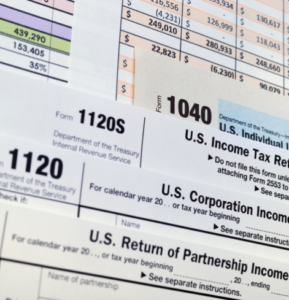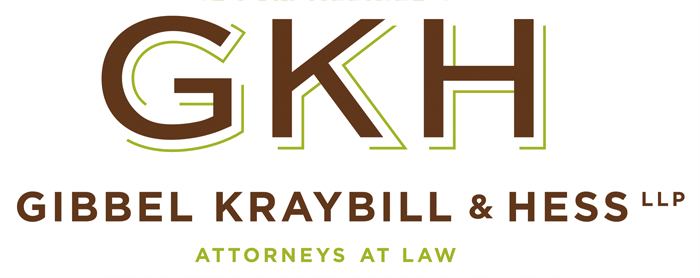Coronavirus Tax Update – April 17, 2020
 In the three weeks since the CARES Act was signed into law, there have been numerous administrative and regulatory developments regarding state and federal taxation. This article summarizes several of the key developments.
In the three weeks since the CARES Act was signed into law, there have been numerous administrative and regulatory developments regarding state and federal taxation. This article summarizes several of the key developments.
IRS Developments
Payroll Protection Program Loans. Businesses, sole proprietors, and independent contractors have been encouraged to apply for loans through the Payroll Protection Program (“PPP”) under the CARES Act. The PPP made available $349 billion in loans to cover payroll and related expenses during the COVID-19 pandemic. The U.S. Small Business Administration’s interim final rules on the PPP were released on April 14. It was widely anticipated that the PPP would be oversubscribed (an estimated 1.6 million loans have been approved). Indeed, yesterday afternoon the Treasury Department acknowledged that all funds had been allocated and the U.S. Small Business Administration posted that it is “currently unable to accept new applications for the Paycheck Protection Program based on available appropriations funding” and is “unable to enroll new PPP lenders at this time.” Congress has been in negotiations to increase funding by an additional $250 billion but these efforts have stalled.
Stimulus Payments. There are reports that stimulus payments have started to be issued. The IRS now has a link on www.irs.gov called “Get My Payment,” which taxpayers can use to ascertain when their payments should be made. There is also a link for individuals who do not have a filing requirement to enter information that will allow the IRS to issue a stimulus payment. Moreover, the IRS announced on April 15 that recipients of Supplemental Security Income will automatically begin to receive stimulus payments no later than early May.
More Deadlines Extended. The IRS announced on April 9 that additional tax filing deadlines would be extended for returns due on or after April 1, 2020, and before July 15, 2020. The extension to July 15 now applies to individuals, trusts, estates, corporations, and nonprofits. However, for pass-through business entities (i.e., S-corporations, LLCs, and partnerships) that operate on a calendar year basis, the original March 15, 2020, deadline for filing returns has not changed. Individual and business taxpayers that request an extension to file beyond July 15 should be sure to pay any taxes owed by that date in order to avoid penalties and interest. Estimated tax payments for income earned between January 1 and May 31 are now due by July 15, 2020 (rather than April 15 and June 15). The April 15 deadline for claiming a refund for tax year 2016 has also been extended to July 15, 2020. The extension of all “specified time-sensitive actions” also extends to the United States Tax Court, which is currently closed. As such, any Tax Court deadline that falls on or after April 1, 2020, has been extended to July 15, 2020. This includes the deadline to file a petition with the Tax Court, to file a claim for a credit or refund, and to appeal a determination. All Tax Court trial sessions through June 30, 2020, have been cancelled.
Customer Service. Most IRS functions involving or requiring taxpayer interaction, such as live telephone assistance, are extremely limited or have been curtailed until further notice. All Taxpayer Assistance Centers are closed, but automated phone services remain available. Taxpayers are encouraged to file their 2019 tax returns electronically to facilitate processing and refunds via direct deposit. Online payment options also remain available. Taxpayers who have already filed a paper return should expect a delay in processing, but under no circumstances should a duplicate return be filed electronically since this is often an indication of identify theft. If the IRS receives a suspicious return or a duplicate return, the taxpayer may be required to validate his or her identity online.
Net Operating Losses. The IRS has released guidance for taxpayers with net operating losses (“NOLs”) that the CARES Act now permits to be carried back. The guidance addresses (i) how to waive the carryback period for NOLs arising in 2018 through 2020; (ii) the election to exclude certain foreign income from the carryback period; and (iii) for tax years beginning before 2018, the waiver and reduction of a carryback period and the revocation of the election to waive a carryback period. In addition, the IRS issued a notice that grants a six-month extension to file applications for refunds resulting from NOLs that arose during tax years beginning in 2018 and ending on or before June 30, 2019. Finally, the IRS has also provided NOL relief for partnerships. Revenue Procedure 2020-23 allows eligible partnerships to file amended returns and K-1s for tax years beginning in 2018 and 2019. This option had been largely eliminated under the centralized partnership audit regime of the Bipartisan Budget Act of 2015. Partnerships that intend to amend their returns are instructed to write “FILED PURSUANT TO REVENUE PROCEDURE 2020-23” at the top of the return.
Scams. The IRS has issued multiple warnings about taxpayer scams. Many of these are fraudulent emails tied to economic impact payments or the Paycheck Protection Program and designed to solicit confidential taxpayer information in exchange for a false promise to accelerate the payment. Taxpayers are reminded to be vigilant when responding to emails, phone calls, text messages, and social media posts. Fraudulent emails can be forwarded to phishing@irs.gov and spam@uce.gov. Most economic impact payments will be direct deposited with no action required by the taxpayer. Payments that must be made by check will be mailed to the taxpayer’s last address of record. Approximately 15 days after the payment is issued, the IRS will send the recipient a letter to notify the taxpayer that the payment has been delivered. There is no fee for delivery and no third-party can accelerate the payment.
Pennsylvania Developments
Customer Service. The Pennsylvania Department of Revenue’s offices and customer service call center are closed. Certain employees continue to work remotely and, as always, taxpayers may submit inquiries via revenue-pa.custhelp.com.
Filing Deadlines. As noted in a prior posting, the deadline for filing and paying has been extended to July 15, 2020. This extension also applies to estimated tax payments for the first and second quarters of 2020. No penalties or interest will accrue during this time. The extension of the filing deadline to July 15 also applies to trusts, estates, LLCs, partnerships, and S-corporations. The deadline for corporations has been extended to August 14, 2020.
Notice and Assessment Deadlines. Tax returns that are filed electronically will continue to be processed and outstanding balances will be assessed. However, if a taxpayer receives an automated notice or assessment that requires a response by a specific date, the Department of Revenue has indicated that the response deadline has been temporarily suspended until the Department reopens.
Scheduled Electronic Payments. Electronic payments that a taxpayer has already scheduled will not be automatically rescheduled by the Department of Revenue. If the taxpayer wishes to reschedule a payment, the taxpayer must make a request via email to ra-achrevok@pa.gov or by fax to 717-772-9310. The request must include the taxpayer’s name, Social Security number, payment date, and payment amount.
Federal Stimulus Payments. Stimulus payments from the federal government will not be subject to Pennsylvania personal income tax since the payment is considered to be a rebate. In addition, stimulus payments will not be considered to be income for purposes of the property tax and rent rebate program.
Property Tax and Rent Rebate Deadline. The application deadline for the property tax rebate and rent rebate programs has been extended from June 30, 2020, to December 31, 2020.
Business License and Certification Extensions. Licenses and certifications that would have otherwise expired during this period of closure are being extended until further notice from the Department of Revenue. This extension applies to the following:
- Sales, Use and Hotel Occupancy tax licenses
- Public Transportation Assistance (PTA) Fund taxes and fees
- Small Games of Chance Manufacturer Certificates
- Small Games of Chance Distributor Licenses
- Sales Tax Exemption Certificates
- Tobacco Product Dealer Licenses
New account registrations for business licenses and certifications can be received electronically through e-TIDES, the Department of Revenue’s online filing system.
Accelerated Sales Tax Payments. Businesses that are required to make accelerated sales tax prepayments will not be charged penalties or interest if they fail to make such payments in April, May, or June. However, the Department of Revenue is requesting that businesses instead remit the sales tax that had been collected in the prior month.
Appeals. Taxpayers who wish to appeal a tax assessment or Revenue determination or wish to petition for a tax refund will have additional time to do so. A petition or appeal filed within 30 days of the reopening of the Board of Appeals will be considered timely if the original due date falls during the period that the Department of Revenue was closed (beginning March 16, 2020).
Further updates will be provided as developments occur.
This update was prepared by attorney Doug Smith, who practices in the areas of estate planning, estate administration, tax law, and business and nonprofit planning. It does not constitute legal advice and has been prepared for informational purposes only. Please contact Doug directly with questions about how these provisions affect you.
